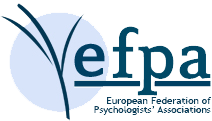FAQ - Specialist Certificate in Clinical Neuropsychology
What is EuroPsy?
EuroPsy, the European Certificate in Psychology, provides a common standard which gives a warranty of quality in psychological education and training. The standard has been endorsed by all 37 national psychologist associations united in the European Federation of Psychologists Associations (EFPA) as the qualification for practice for psychologists. See https://www.europsy.eu/quality-and-standards
The EuroPsy Certificate is awarded to a newly qualified psychologist. After a number of years of practice as a psychologist, it is possible to apply for a Specialist EuroPsy Certificate. At the present time this exists in two areas: Psychotherapy and Work and Organizational Psychology. See https://www.europsy.eu/quality-and-standards/europsy-specialisation
The European Awarding Committee (EAC) of EFPA has responsibility for developing and monitoring developments of EuroPsy, and in each country the National Awarding Committee (NAC) takes responsibility for evaluation and award of individual EuroPsy certificates. See https://www.europsy.eu/about-us
What is the pilot project?
The pilot project aims to establish a Specialist EuroPsy Certificate in Clinical Neuropsychology. The requirements for obtaining the specialist certificate describe the expected standards for anyone entering the field and starting to practice as Clinical Neuropsychologist.
The pilot project was proposed by the EFPA Standing committee on Clinical Neuropsychology and approved in the GA in December 2022. The pilot project will run until the GA in 2025. If the results of the pilot are considered positive, the Specialist certificate will become part of the EuroPsy system.
Who takes part in the pilot project?
The piloting countries are Austria, Cyprus, Finland, Portugal, and Spain. In these countries, Provisional Specialist National Awarding Committees (PSNACs) will be established starting 2023.
EFPA member associations were asked to suggest their participation in the pilot, and the EFPA EAC and the Executive Committee confirmed the piloting countries. Countries with an established tradition in advanced training in Clinical Neuropsychology as well as countries only starting to develop such training are included in the pilot. This ensures the testing of broad applicability of the requirements.
When the pilot phase is over, other countries can join in establishing Specialist National Awarding Committees (SNACs).
Will the Specialist Certificate change the requirements for practicing neuropsychology in my country?
As with the basic EuroPsy, the specialist certificate is not mandatory for practice, nor will it override national legislation or standards. It represents a benchmark for practicing as a neuropsychologist that can be voluntarily applied for and issued to psychologists who demonstrate that their training meets the defined standards.
Will the Specialist Certificate change the training systems for practicing neuropsychology in my country?
National training providers and authorities may compare their standards with those presented within the specialist EuroPsy system and modify if they so choose. For countries where the training models are only developing, the EuroPsy standards may serve as an aspirational goal. Countries will well-established training models can maintain their high standards.
Will the Specialist Certificate guarantee licence to practice within all of EU?
No, not at all. The certificate will not override national legislation or standards. Most national authorities have their own requirements for licencing general practice of psychology, and many have also requirements for specialisation. The specialist certificate will assist in mobility by providing a clear description of the level of expertise achieved. A common standard gives a warranty of professional competency for the national authorities to review.

